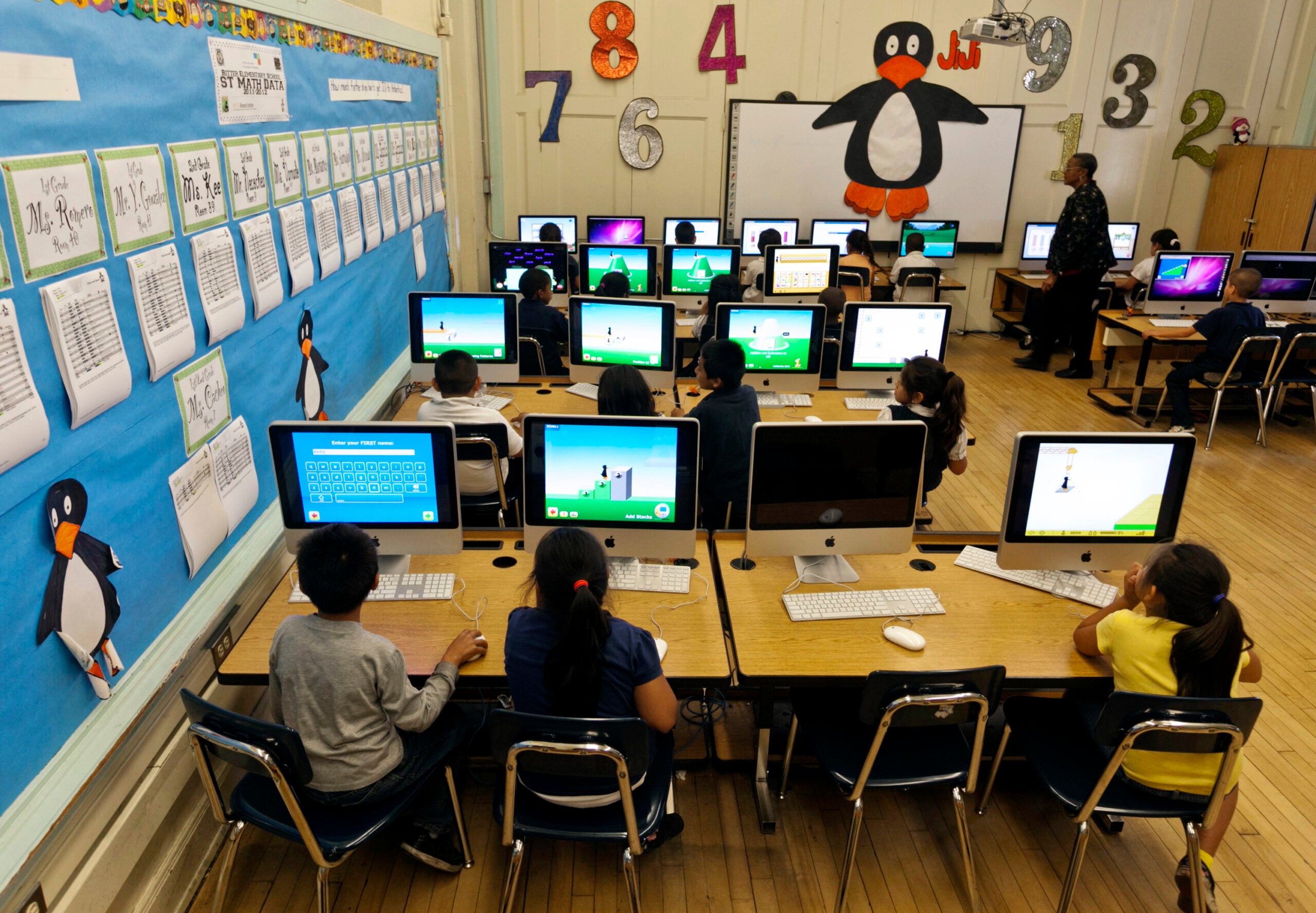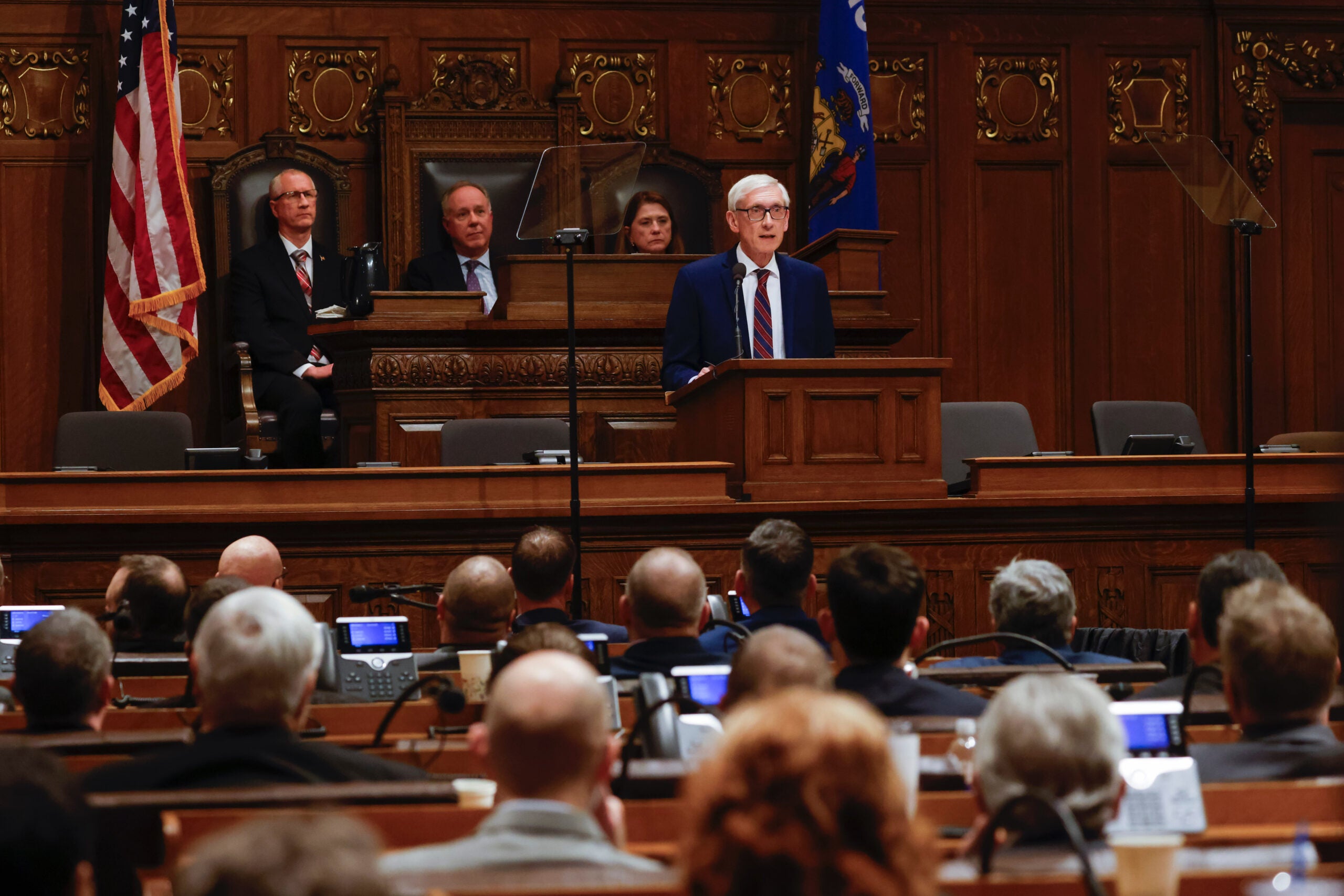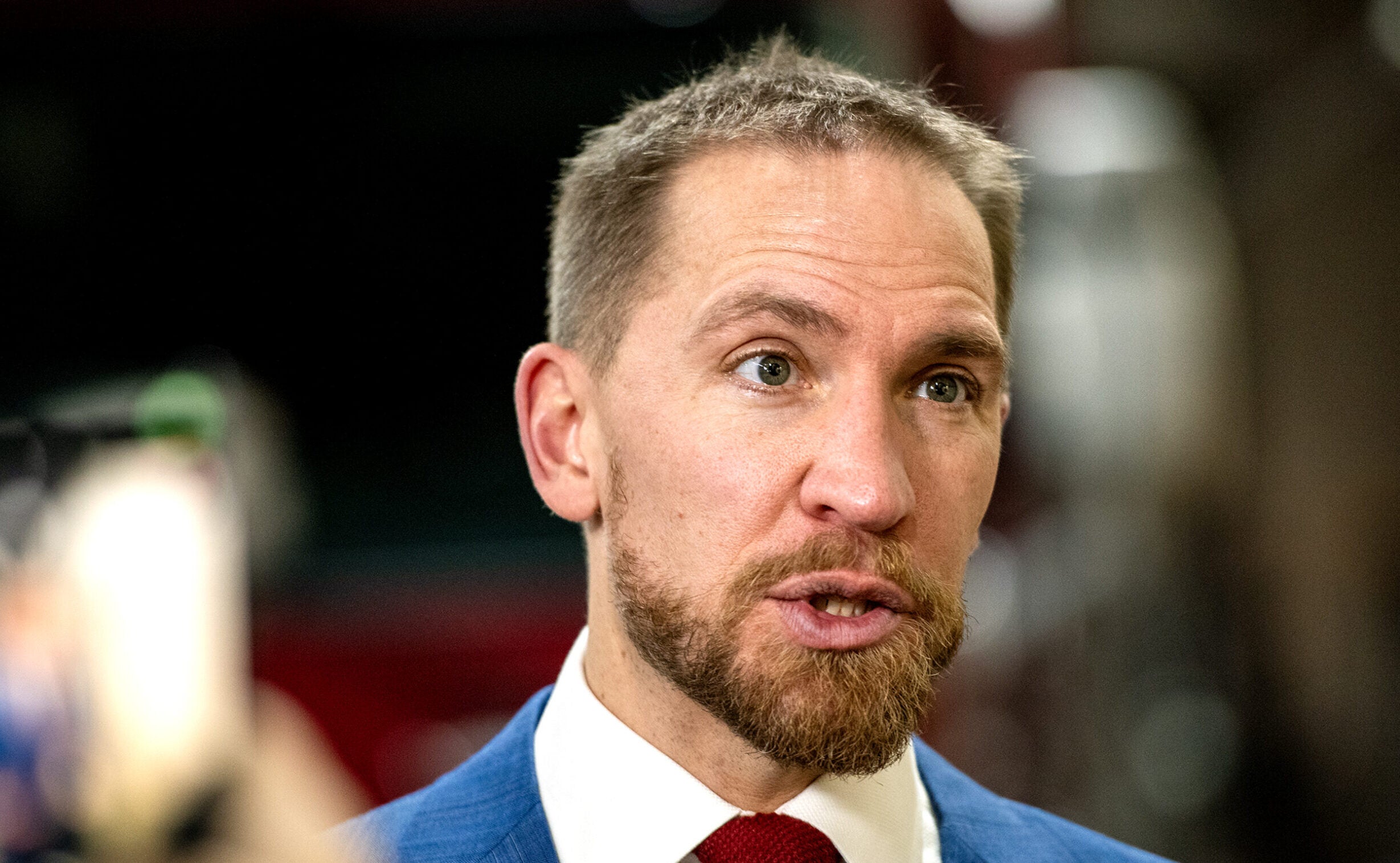Gov. Scott Walker announced Monday that the budget proposal he will unveil Wednesday will include $649 million in new state aid for public and voucher schools.
If approved by the state Legislature, the increased spending will amount to $200 per student each year of the two-year budget.
Walker’s increased support for schools comes after he proposed a $127 million cut in his last biennial budget, a move that was ultimately blocked by lawmakers.
Stay informed on the latest news
Sign up for WPR’s email newsletter.
The governor said his proposed increase is possible because of his Act 10 reforms that all but eliminated collective bargaining rights for public-sector employees. The reforms were seen as union busting by many educators.
Speaking Monday in Green Bay, Walker acknowledged his spending plans might not be universally popular among lawmakers.
“We might even get some pushback from some who say we’re putting too much money into schools, but our argument with that is because of our Act 10 reforms we know that money is going to go overwhelmingly into the classroom,” Walker said.
Later Monday, Senate Majority Leader Scott Fitzgerald, a fellow Republican, said he is unwilling to get behind Walker’s proposed increase. And he told reporters Monday he knows that some other Republican senators won’t support it.
Fitzgerald said he wants to see how the spending increase for K-12 schools stacks up against other needs in the budget, including transportation and tax cuts, and he wants his full caucus to discuss the idea before he commits.
“I’m cautious and don’t want to commit to anything until I have a full discussion,” Fitzgerald said.
Meanwhile, a school advocacy group praised Walker’s proposal, saying the increase in per-pupil school funding was directly in line with what it has been asking for.
“It’s a significant, significant increase in state resources being made available to local school districts,” said Wisconsin Association of School Boards Executive Director Dan Rossmiller. “And they’re being made available in a way that will not increase property taxes, will be entirely funded by the state. So there’s no local obligation to pick up the tab.”
Rossmiller said Walker’s plan puts schools in a favorable position compared to where they started previous budget cycles.
Middleton Democratic state Sen. Jon Erpenbach, who sits on the Legislature’s Joint Finance Committee, said it would be great to see more state money spent on public education. But Erpenbach said he wants to know whether the rest of Walker’s budget is based on realistic numbers and whether urban and rural school districts would receive the school funding they need.
“If the money is real and we have a formula that gets it to those two types of schools, urban and rural, I think there’d be a lot of support for it,” Erpenbach said. “If it’s going to the wealthier school districts, then we have a problem.”
Walker rolled out part of his education budget last week. It would spend more on rural school districts with sparse enrollment and high transportation costs. He also earmarked some money for Milwaukee Public Schools.
Wisconsin Public Radio, © Copyright 2025, Board of Regents of the University of Wisconsin System and Wisconsin Educational Communications Board.





